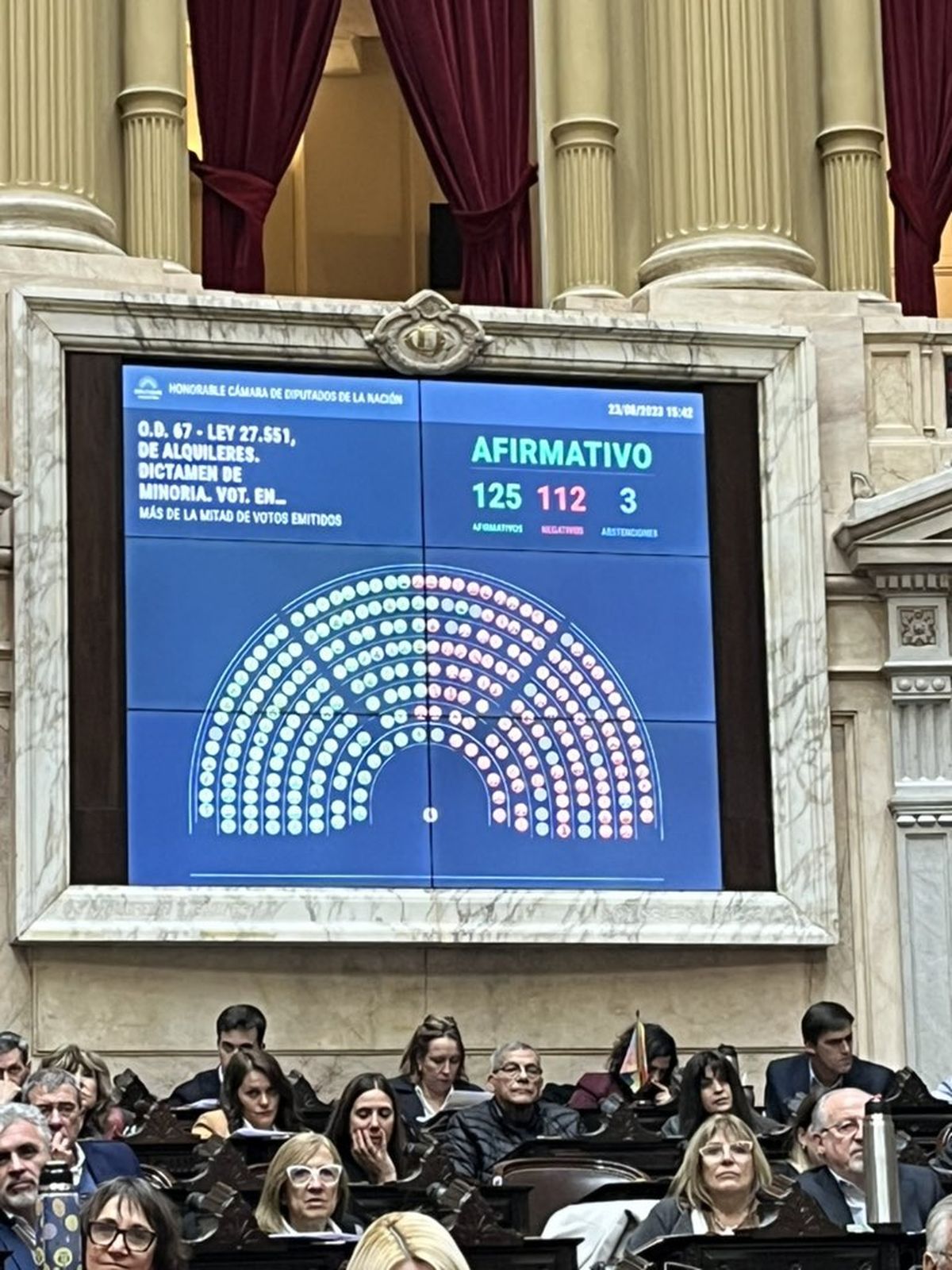Are you looking for a way to unlock rental freedom and understand the Ley de Alquileres? Look no further! Our comprehensive guide will provide you with all the information you need to navigate the legal framework and ensure a seamless tenancy experience.
Editor's Note: Unlocking Rental Freedom: Understanding The Ley De Alquileres For A Seamless Tenancy Experience published on [date]. Understanding the Ley de Alquileres is essential for tenants and landlords alike, as it outlines the rights and obligations of both parties.
Through extensive analysis and research, we have compiled this guide to empower you with the knowledge you need to make informed decisions and enjoy a harmonious tenancy. Our guide covers key aspects of the Ley de Alquileres, such as:
| Key Differences | Key Takeaways |
|---|---|
| Contract Duration | Minimum contract duration of 5 years, with mandatory renewal for another 3 years. |
| Rent Updates | |
| Tenant's Rights | Stronger protection for tenants, including limitations on rent increases and evictions. |
| Landlord's Obligations | Increased responsibilities for landlords, such as maintaining the property in good condition and providing basic utilities. |
By understanding the provisions of the Ley de Alquileres, you can navigate the rental market with confidence and avoid potential pitfalls. Whether you are a tenant seeking a stable and affordable home or a landlord looking to comply with the law, our guide will empower you to make informed decisions and create a mutually beneficial tenancy experience.
FAQ
To provide clearer comprehension of "Unlocking Rental Freedom: Understanding The Ley De Alquileres For A Seamless Tenancy Experience", this FAQ section addresses frequently raised queries. By studying these questions and responses, you will gain valuable insights into the subject.

Cambios en la Ley de alquileres: cómo votaron los diputados de Santa Fe - Source www.airedesantafe.com.ar
Question 1: What are the key provisions of the Ley De Alquileres?
The Ley De Alquileres establishes a comprehensive framework for regulating rental agreements in Spain, addressing areas such as contract duration, rent increases, and tenant rights. It aims to strike a balance between protecting tenants and ensuring fair treatment for landlords.
Question 2: How long can a rental contract last under the Ley De Alquileres?
The law sets a default contract duration of five years, providing tenants with increased stability and protection against frequent evictions.
Question 3: Are there limits on rent increases under the Ley De Alquileres?
Yes, the law introduces a rent cap, limiting annual rent increases to the Consumer Price Index (CPI) or a benchmark index established by the government. This measure is designed to prevent excessive rent hikes that could burden tenants.
Question 4: What are the requirements for terminating a rental contract under the Ley De Alquileres?
Both tenants and landlords have specific obligations and grounds for terminating a rental agreement. Tenants typically have stronger protection against eviction, but they can also be held responsible for breach of contract or other violations.
Question 5: How does the Ley De Alquileres affect landlords' rights?
While the law enhances tenant protections, it does not eliminate landlords' rights. Landlords still have the right to collect rent, enforce contractual obligations, and pursue legal remedies in cases of tenant misconduct.
Question 6: Where can I find more detailed information about the Ley De Alquileres?
To delve deeper into the provisions of the Ley De Alquileres and its implications for tenants and landlords, we strongly recommend exploring the comprehensive guide provided at Unlocking Rental Freedom: Understanding The Ley De Alquileres For A Seamless Tenancy Experience.
Summary: The Ley De Alquileres aims to create a fairer and more balanced rental market in Spain, safeguarding tenant rights while recognizing the legitimate interests of landlords.
Next Article Section: Exploring the Benefits of Long-Term Rental Contracts: A Comprehensive Guide
Tips
By understanding the intricacies of the Ley De Alquileres, tenants can navigate the rental market with confidence. Here are some practical tips to ensure a seamless tenancy experience:
Tip 1: Familiarize Yourself with Rental Regulations:
Thoroughly review the Ley De Alquileres to understand your rights and responsibilities as a tenant. This knowledge empowers you to make informed decisions and protect your interests.
Tip 2: Secure a Comprehensive Rental Agreement:
Ensure that the rental agreement clearly outlines important aspects such as rent amount, payment terms, and tenancy duration. This written documentation serves as a legal safeguard for both parties.
Tip 3: Stay Informed about Rent Updates:
The Ley De Alquileres establishes formulas for calculating rent updates. Keep abreast of these regulations to avoid unexpected increases or potential disputes.
Tip 4: Exercise Your Right to Repairs and Maintenance:
Landlords are legally obligated to maintain the property in habitable condition. Report necessary repairs or maintenance issues promptly, and follow proper channels to ensure timely resolution.
Tip 5: Protect Your Deposit:
At the start of the tenancy, a security deposit is typically collected. Understand the regulations governing the use and return of this deposit to avoid potential conflicts.
Tip 6: Handle Eviction Proceedings Responsibly:
In case of an eviction scenario, comply with legal procedures and seek professional advice if necessary. The Ley De Alquileres provides specific safeguards for tenants, ensuring fair treatment.
Summary:
By following these tips, tenants can navigate the rental market with confidence, ensuring a smooth and harmonious tenancy experience. Understanding and adhering to the Ley De Alquileres empowers individuals to make informed decisions, protect their rights, and build positive landlord-tenant relationships.
Unlocking Rental Freedom: Understanding The Ley De Alquileres For A Seamless Tenancy Experience
The Ley De Alquileres has revolutionized the Spanish rental market, creating a more balanced and fair landscape for both tenants and landlords. To unlock the full benefits of this law and enjoy a seamless tenancy experience, it is essential to understand its key aspects:
- Rent Control: Restricts excessive rent increases, providing stability and affordability for tenants.
- Extended Leases: Minimum leases are now five years for tenants and seven years for landlords, offering greater security.
- Improved Tenant Rights: Tenants are now protected against arbitrary evictions and have the right to a dignified and habitable living space.
- Enhanced Landlord Responsibilities: Landlords are required to maintain the property and cover major repairs, ensuring a quality living environment.
- Mediation and Dispute Resolution: The law establishes mechanisms for mediation and dispute resolution, fostering a collaborative approach between tenants and landlords.
- Tax Incentives: Rental income is subject to taxation, encouraging landlords to declare and comply with regulations.
Understanding these aspects empowers tenants with the knowledge to navigate the rental market confidently, while also ensuring that landlords adhere to their legal obligations. The Ley De Alquileres provides a framework for harmonious landlord-tenant relationships, leading to a more equitable and secure rental experience for all parties involved.
Contratos demorados, cambio en el ajuste de precios y expectativa por - Source www.eleco.com.ar
Unlocking Rental Freedom: Understanding The Ley De Alquileres For A Seamless Tenancy Experience
The Ley de Alquileres is a crucial component of unlocking rental freedom, as it provides a comprehensive framework for both tenants and landlords, ensuring a balanced and equitable rental market. Understanding its provisions empowers tenants with their rights and responsibilities, fostering a harmonious and secure tenancy experience.

Nueva ley de alquileres - Artículo 1°- Sustitúyase el artículo 75 del - Source www.studocu.com
The regulation establishes clear guidelines for rental agreements, setting limits on rent increases, and providing protection against arbitrary evictions. This ensures stability and predictability for tenants, allowing them to plan their finances and maintain a sense of home. Moreover, the law promotes transparency and fairness in rental transactions, fostering trust and mutual respect between parties.
The Ley de Alquileres also ensures a streamlined dispute resolution process, providing tenants with access to legal assistance and mediation services. This efficient system helps resolve conflicts amicably, preventing them from escalating into costly and time-consuming legal battles. By addressing the concerns of both tenants and landlords, the law fosters a positive and collaborative rental environment, benefiting all parties involved.
Conclusion
In conclusion, understanding the Ley de Alquileres is paramount for unlocking rental freedom and creating a seamless tenancy experience. It empowers tenants with their rights and responsibilities, fostering stability, predictability, and fairness in rental transactions. By providing a clear framework and streamlined dispute resolution process, the law promotes a harmonious and balanced rental market, safeguarding the interests of both tenants and landlords.
Embracing the principles of the Ley de Alquileres is essential for unlocking the full potential of rental freedom. It empowers tenants with the knowledge and confidence to navigate the rental market confidently, ensuring they have a safe, secure, and fulfilling tenancy experience.
